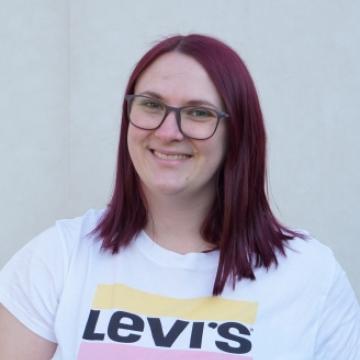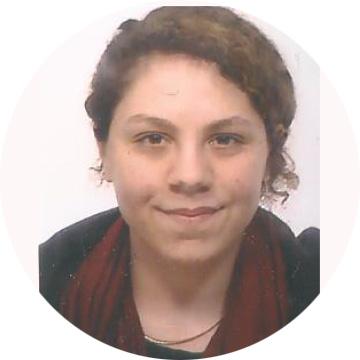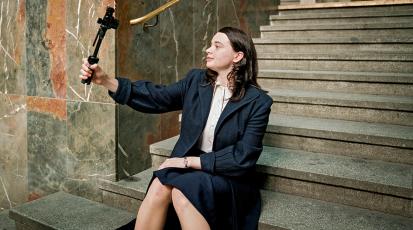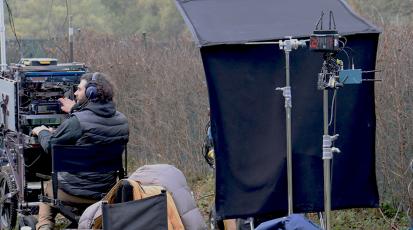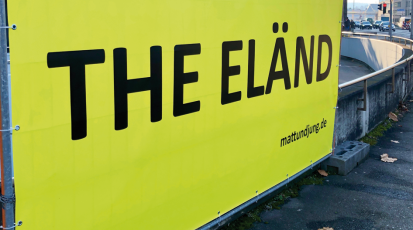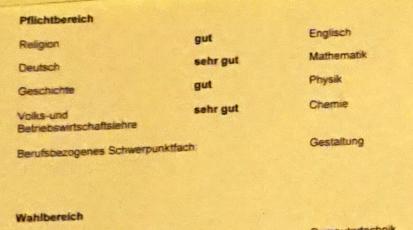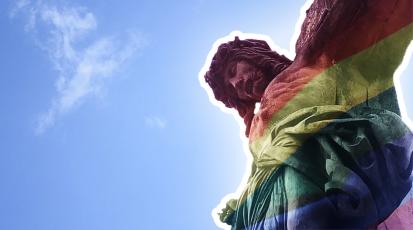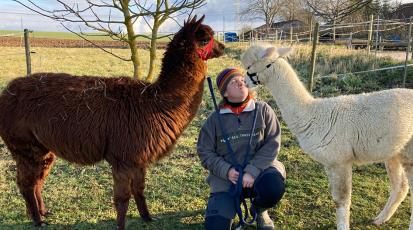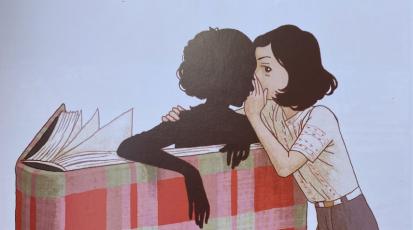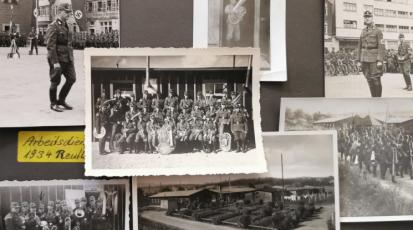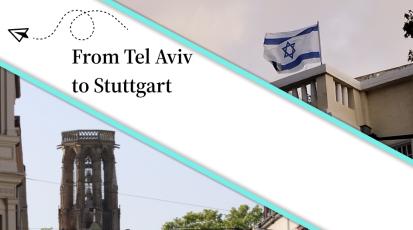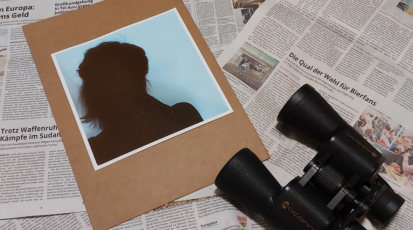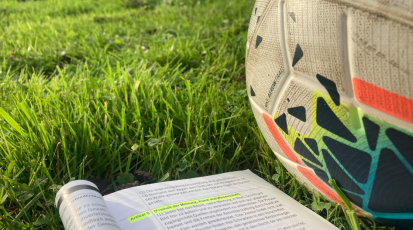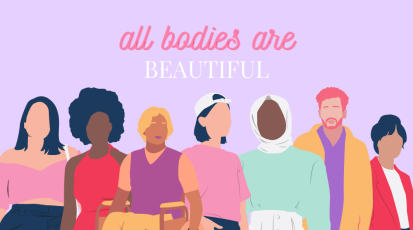"She was an amazing mother, but life around her was very complex."
Second Generation – how the post-war generation still suffers today
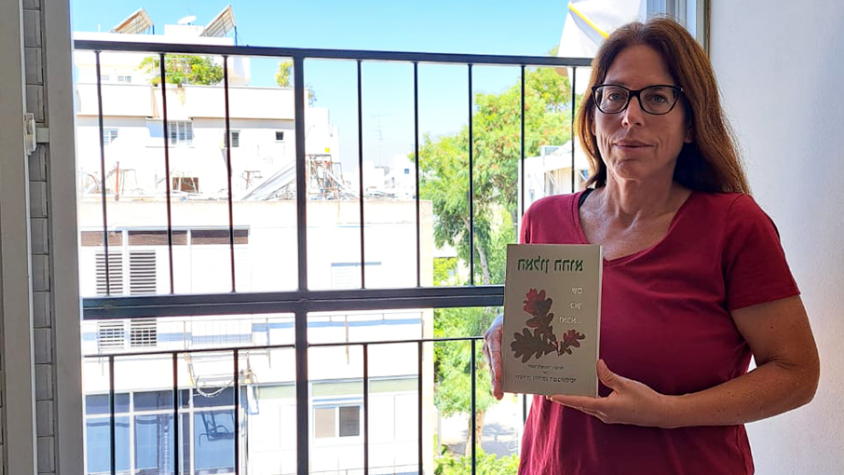
Even though the Holocaust ended in 1945, unfortunately that doesn’t mean that 77 years later the surviving families are not being affected by it anymore. Especially the direct offsprings of the survivors are suffering from the trauma of their parents. This generation is called the “Second Generation”. Most of the time, there is a huge mystery and silence within the families, as the survivors often choose not to talk about what happened to them because they are still too traumatized. But this silence often causes issues within the families or even pushes family members to end their lives.
The consequences of silence
Michel Kichka is a famous author, born in Belgium and living in Israel, who is also part of the Second Generation. He created a graphic novel called “Second Generation” about the relationship to his father, who survived the concentration camp in Auschwitz. His father Henri also wasn’t able to talk about what he had experienced, which influenced the family dynamic negatively, even causing his youngest son to suicide. ”I can say that more than 95 percent of the parents simply could not talk about it. Not that they did not want to, but they were not able to tell their stories to their own kids”, Michel Kichka describes.
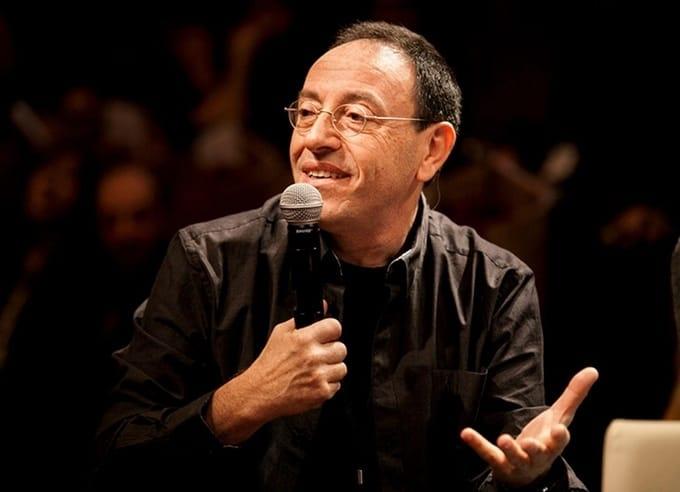
Similar to the children of the Kichka family, the aunt of one of us, Alona Shachar, has also been affected by the trauma of her parents. Especially her mother Shula was very traumatized and even bipolar due to the impacts of the Shoah. “She was a Holocaust survivor who did not talk at all about what she went through and even when she was being asked, she refused to talk about it. She was an amazing mother, but life around her was very complex“, Alona says.
Shula had mania attacks, which came to the foreground when she bought a lot of towels for no reason, hid money or cleaned up everything excessively. She also laid in bed depressed and said that there is no sense in this life. That was very hard for her family. Alona as a young girl didn’t understand this behavior and being the youngest daughter, she also felt ashamed for the mental illness of her mother. Alona needed a long time to understand: it’s a disease.
One time Alona's older brother annoyed their mom so much, she had a severe nerve attack. “From that moment on, she went into a serious nerve attack and was evacuated to a psychiatric hospital. As a child, I was very ashamed. My mother was taken by force, shouting and screaming, and all the neighbors could hear it”, she adds. “Today, it breaks my heart to think of the suffering and imbalance she must have constantly been in”.
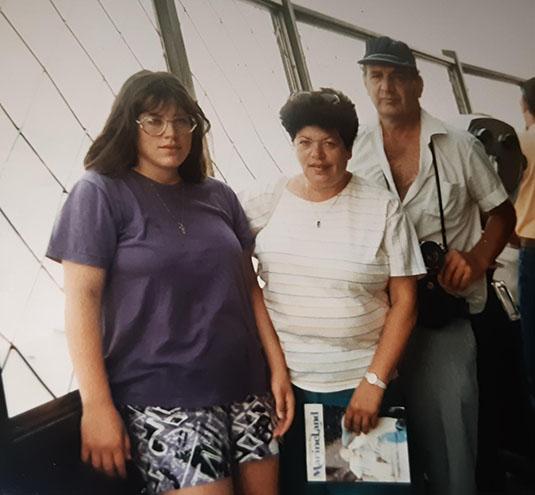
The impacts of the Holocaust not only result in mental illness. Survivors are often still suffering from physical damages. Like it is described in “Second Generation”, Michel Kichka's father Henri also had to deal a lot with the aftermath of the concentration camp in Auschwitz. While he wasn’t able to talk about the Holocaust just like Shula, Henri suffered from the effects of the “Todesmarsch”, the long “death-march” at very cold temperatures without food. The people who had to go through this only had shoes made out of wood, which deformed their feet and caused them a lot of pain. Henri had ulcerations in his stomach from his time in the concentration camp, and only little arguments with his family caused massive physical pain to him.
When Henri Kichka's youngest son Charly committed suicide, something changed. He suddenly started to talk about his experience from the Shoah. In his graphic novel, Michel Kichka describes that he thinks, as Henri found his son dead, all the surpressed pictures from the deaths of the Holocaust awoke and both traumas collided. Also, Henri started to go to Auschwitz with students, and even wrote a book about his lost youth in the concentration camps and the tragedy that happened there.
Alona's family dealt with the situation differently
The fact that every child reacts differently to their parents' trauma, can also be seen in Alona's family. While her sister was helping with the chores in the house and open for conversation with their parents, her brother was extremely introverted. Alona herself was very childish for a long time. Because of those differences, she thought her sister was their moms favorite child for a long time. “However, today I look back and think I may have felt that way because I was not open and caring enough about my mother”, she says.
As well as Henri Kichka, Alona's father Michael also wrote a book that tells the story of his life, including his experience of the Holocaust, but also his later life as a father. Unlike Alona's mother, he was quite the contrary, as he was able to talk about the Shoah: “terribly open and honest”, Alona describes. He lost most of his family in the Holocaust and had to flee from Poland as an eight-year-old boy to live with his aunt in Israel. Alona thinks that because of his profession as a teacher, it was easier for him to talk about what he went through back then. “He saw it as a kind of mission to talk, so that they would remember and know about everything that happened there”, she says.
Comparing Michel Kichka and Alona, it appears their childhood was very similar. Both didn’t know what their parents had been through and that’s why they didn’t understand their behavior. Also, the lack of open-mindedness is a similar feature, Alona describes. Her grandfather, a successful businessman, stayed in Germany after the Holocaust and never immigrated to Israel. Like Henri Kichka, he saw this as his revenge on the Germans: “Stay there and make money”. And Henri's revenge was to have many kids who are getting excellent grades in school. For both, it was important to “show” Hitler proudly what they are capable of as their suffering during the Holocaust was over.
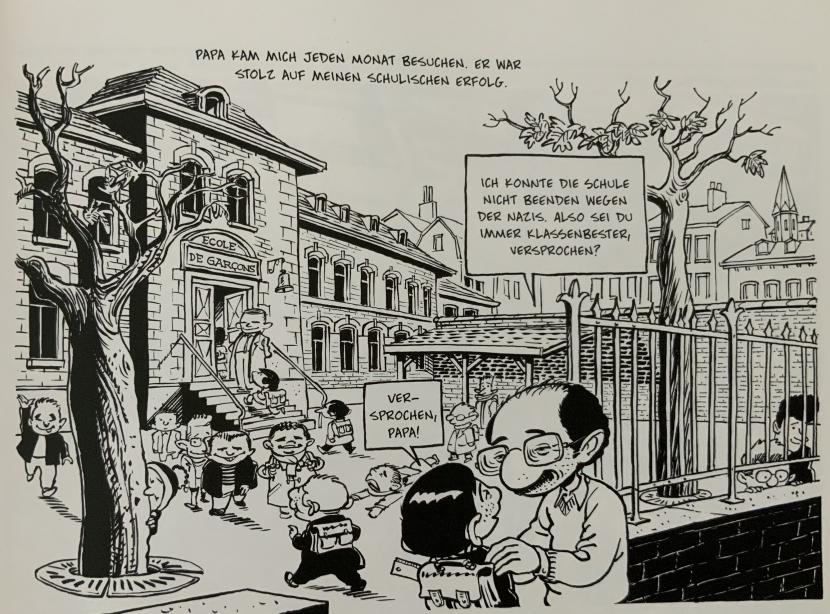
A difference however to Michel Kichka's life is that Shula never had been able to talk about what happened to her. She died early at the age of 63. “I am sad that I lost my mother at a young age and did not have time to fix my relationship with her”, Alona says. There was no turning point like the suicide of Charly Kichka that caused her to suddenly start talking about her traumatic experience. That’s why Alona couldn’t find out exactly what Shula must have been through. She also wonders if she would have ever been able to talk about her past.
The Second Generation shows, that a war crime like the Holocaust, can affect way more people than the ones that were directly affected by it. As the unprocessed trauma of the survivors from the Shoah gets passed on to their children, it often leads to family problems and even mental illnesses of the Second Generation. However, even though they had to experience that, often times they chose not to talk about the Holocaust or their family history to their children. For example, Alona doesn’t really discuss what happened to her parents to her children, even though this silence ruined the relationship with her mom. The Holocaust was one of the darkest times in human history and to this day it still affects a lot of people, but one thing that could help to end that curse is to break the silence.



